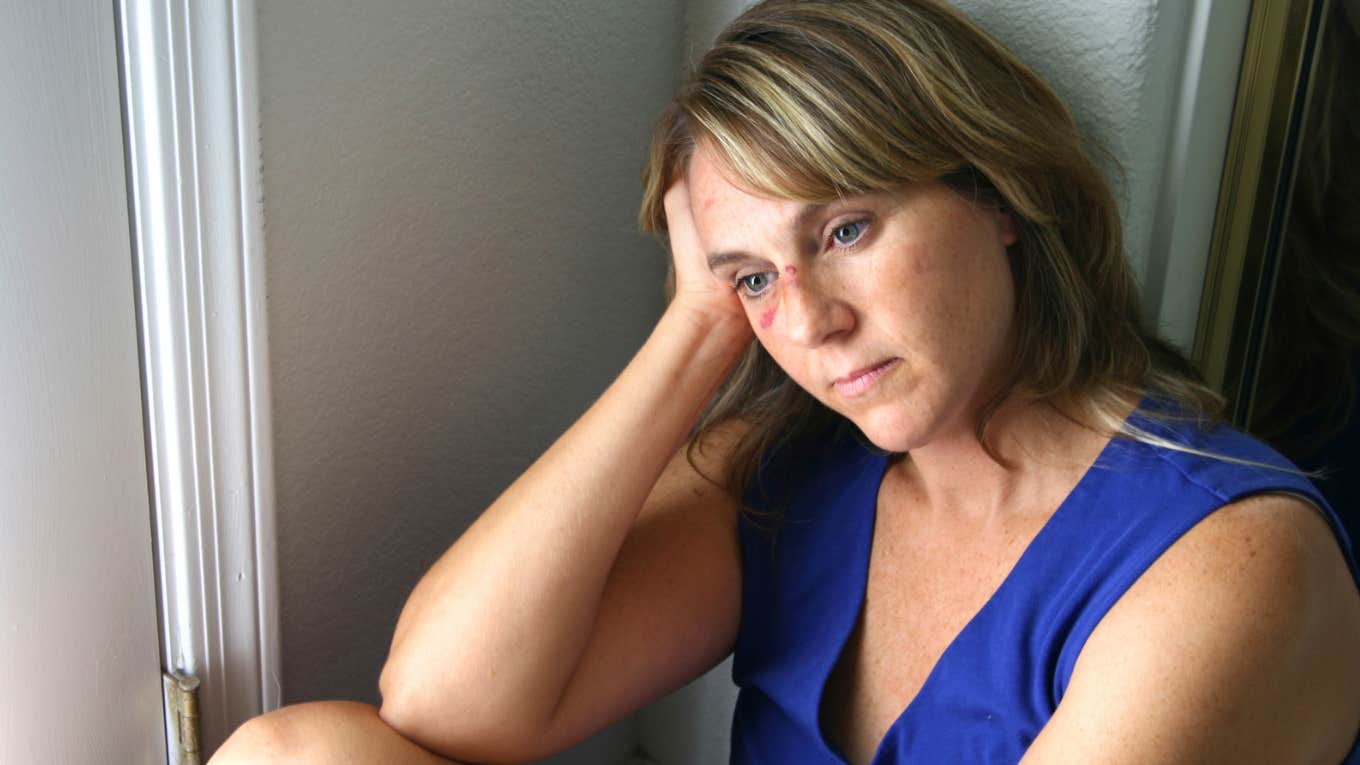3 Ways To Spot Domestic Violence In A Relationship
How to understand what abuse looks like.
 Primeop76 | Canva
Primeop76 | Canva Domestic abuse can happen to anyone. Regardless of age or gender, the people around you could be enduring various types of domestic abuse. Many people believe that domestic violence and abuse only occur when people physically harm one another. This isn’t true. There are various types of domestic violence, including psychological abuse, emotional abuse, and physical abuse. And, various relationship red flags indicate this type of abuse. So, what is domestic violence?
According to The Center For Family Justice, the definition of domestic violence is: "Domestic abuse is a pattern of coercive, controlling behavior that is a pervasive life-threatening crime affecting people in all our communities regardless of gender, age, orientation, race, ethnicity, religion, social standing, and immigration status." Domestic abuse happens whenever someone in an intimate relationship or marriage tries to use power to control the other person. Most abusers want to wear down the other person, using tactics that include guilt, fear, shame, and intimidation.
Victims of domestic violence often have low self-esteem and confidence, anxiety, problems trusting others, and much more. It is a serious situation that can have a lifelong impact on those who survive it. And while many agree that domestic abuse is a big issue, many people don’t know how to identify signs of abusive relationships. If you're wondering how to spot warning signs of domestic violence, here's what to do.
Here are 3 ways to spot domestic violence in relationships, either yours or someone you love:
1. Do a self-assessment
The following is a list of questions that you or your loved one can ask yourselves to determine if you're suffering from domestic violence:
Do you:
- Feel afraid around your partner?
- Wonder if you’re the one who is crazy in the relationship?
- Purposely avoid topics or issues in fear of upsetting your partner?
- Feel hopeless and numb when it comes to your relationship?
Does your partner:
- Yell at and humiliate you?
- Treat you in a way that you don’t want to be seen by your family.
- Invalidate your opinion or accomplishments.
- See you as property instead of a person?
- Hurt you or threaten to hurt you?
These are only a few questions that may show you whether or not you are in an abusive relationship. If some of these questions resonate with you, do not be afraid to ask for help. Everyone deserves to be in a loving and caring relationship. If you're noticing signs of domestic abuse, there is help available.
2. Physical wounds
Physical abuse is a form of domestic violence that most people are aware of. Physical abuse is using physical force against a person in a way that is meant to injure or hurt them. This is a crime, regardless of whether it occurs inside or outside of a family. It is not uncommon for abusers to physically abuse their significant others. If you see bruises, open wounds, or other injuries on a loved one, they may be signs of domestic abuse.
Note that most people try to avoid hitting others in the face or other apparent areas. If you suspect that your friend is getting mistreated, be cognizant of their arms, legs, and back. Injuries in these areas specifically can be indicators of an abusive relationship. You should also be aware of what your loved one is wearing. Have they started to cover up their body more? Are they insisting on wearing long sleeves in hot weather? Is this paired with changing behaviors and periods of isolation? If you begin to notice a pattern, find time to ask them about it privately.
3. Signs of isolation & psychological abuse
Another sign of domestic violence is distance and isolation. Is your friend and loved one becoming more and more distant? Are they turning down get-togethers that they would normally frequent? Do they suddenly seem depressed or anxious? Did their personality change and make a 180? These could be a sign of emotional abuse. Emotional abuse is often just as destructive as physical abuse. Victims of emotional abuse often have low self-esteem, operate in fear, and feel guilty about doing things that their partner wouldn't want them to do.
An emotionally abusive relationship often causes them to feel as if they need to do everything their partner says and are manipulated to believe that if they lose their significant other, they will lose everything. If you are noticing signs of abuse in a loved one, don’t be afraid to speak up. While you may think that it is none of your business, expressing concern and care could potentially save their life. Speak to them in private and let them know that you are worried. If they aren’t willing to talk about it right away, reassure them that you will always be around to listen. Offer support and be ready when they reach out.
If you think you may be experiencing depression or anxiety as a result of ongoing emotional abuse, you are not alone.
Domestic abuse can happen to anyone and is not a reflection of who you are or anything you've done wrong.
If you feel as though you may be in danger, there is support available 24/7/365 through the National Domestic Violence Hotline by calling 1-800-799-7233. If you’re unable to speak safely, text LOVEIS to 1-866-331-9474.
Brian Beltz is the head writer at Divorce Help 360. He writes guides, offers advice, and explores trends and pitfalls for those affected by or interested in divorce.

